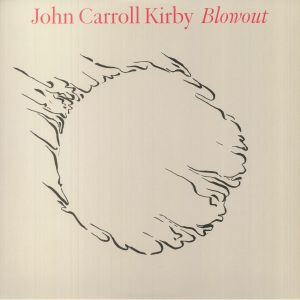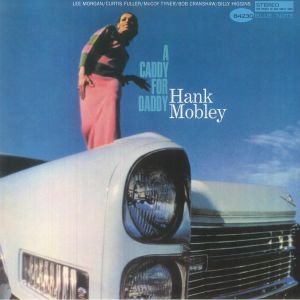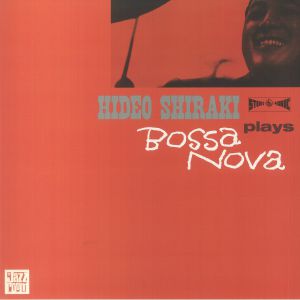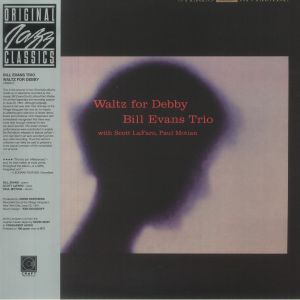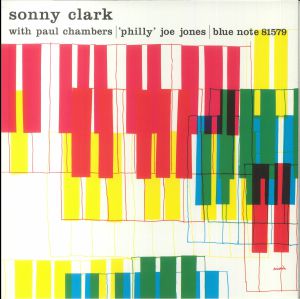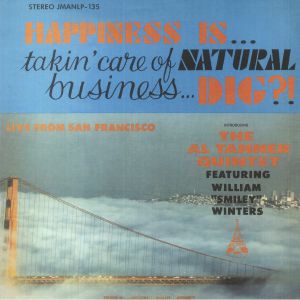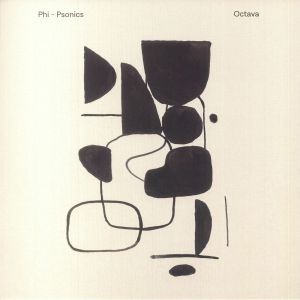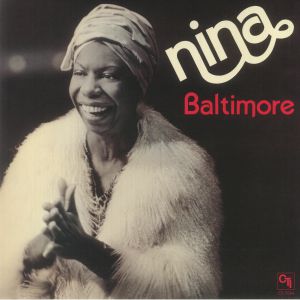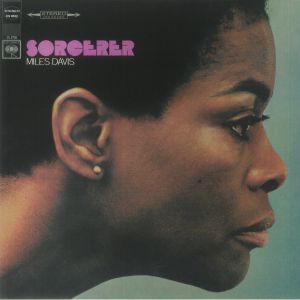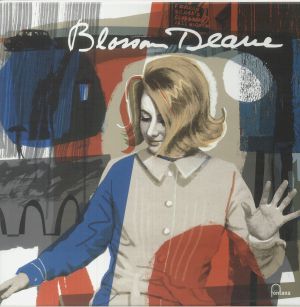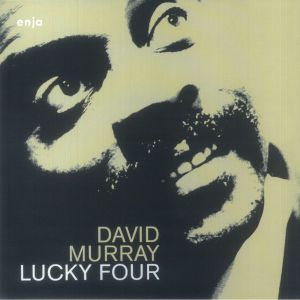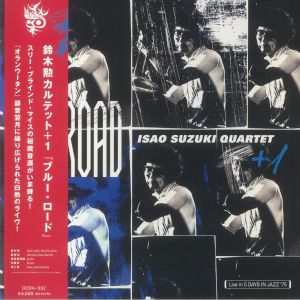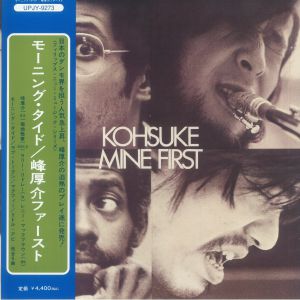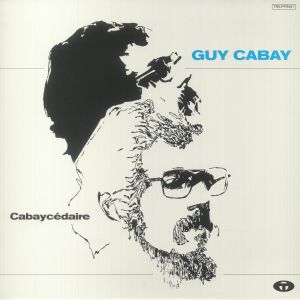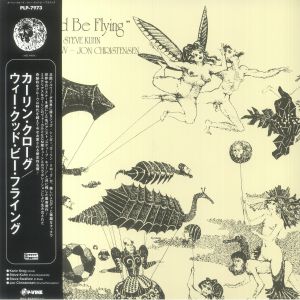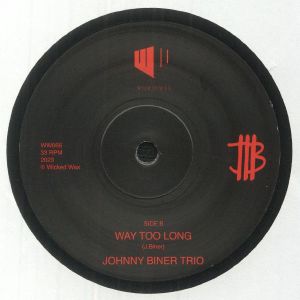
Juno Recommends Jazz
Jazz Recommends Jazz July 2023
6 Jul 2023
Read more...
1
Review: The ever-prolific John Carroll Kirby is back on Stones Throw barely a minute after releasing no less than two albums last year. Of course, no one is complaining when the quantity is matched with the quality Kirby brings, and Blowout is bursting with the laid back musicality and inherent joy Kirby is so well-loved for. The album was recorded during a recent stay in Puerto Viejo, Costa Rica, and you can sense the surroundings feeding into the music, from the 5am wake up call from the oropendola birds to the blissful sunsets. This is smooth as silk jazz funk with a mission: to help you enjoy life. Consider this mission accomplished.
...Read more
in stock $32.87
2
Review: Few jazz saxophonists were as majestic as Hank Mobley. He had a unique sound that sat in between the rawness of John Coltrane and the smoothness of Stan Getz and released a number of now-classic albums. Soul Station has already had the Tone Poet Series treatment and next up to get remastered and come on new audiophile vinyl is A Caddy For Daddy. He had already been a But Note artist for some 10 years when he recorded this one in 1965. It finds him alongside a first-class sextet with Lee Morgan on trumpet, Bob Cranshaw on bass, McCoy Tyner on piano, Billy Higgins on drums and Curtis Fuller on trombone.
...Read more
in stock $41.16
3
Review: Hideo Shiraki first played bossa nova all the way back in 1962 for Japanese label King; he did it again in 2007 on the album's first reissue via Think!; and now, he plays the Brazilian masterstyle a whopping third time, on this second known reissue of the album by Jazz Room. An energetic foray through roomy shakers and boxy hits hears the Japanese drummer and Japanese jazz pioneer pin down bossa nova like a nail on a golden donkey, with the opening 'Tico Tico' opting for pure excitement, and relative oddities like 'Orfeo Negro' getting far noirer, sombrer with it.
...Read more
out of stock $26.80
4
out of stock $45.30
5
Review: .Blue Note's Tone Poet looks back in the legendary jazz label's archives all the way to 1965 for this next reissue, which has been produced by Joe Harley, mastered by Kevin Gray from the original analogue master tapes and comes in a deluxe gatefold tip-on jacket. Sonny Clark was one of the most swinging pianists of his era. He hit Blue Note in 1957 with three albums in quick succession in just three months. The six-song set of the sublime Sonny Clarke Trip is one of them and with its bebop themes and standards features bassist Paul Chambers and drummer Philly Joe Jones.
...Read more
in stock $33.14
6
Cat: CCMS 007. Rel: 10 Jul 23
Jazz
out of stock $37.84
7
Cat: JMANLP 135. Rel: 03 Jul 23
Jazz
Review: First released back in 1967 on the Touche label and impossible to find on vinyl ever since, Happiness Is Taking Care of Business, Dig was the sole album from the short-lived Al Tanner Quintet. Yet as this much-needed Jazzman reissue proves, it remains an inspired selection of spiritually enriching modal workouts that makes the most of its talented ensemble. While pianist and bandleader Al Tanner naturally makes his presence felt throughout, flautist/trumpeter George Alexander and tenor saxophonist Roy Henderson also deliver inspired solos, while the rhythm section of drummer William 'Smiley' Winters and bassist Edgar Williams are also on fine form throughout.
...Read more
in stock $32.04
8
Review: British jazzers Phi Psonics are as mathematical as they are spiritual, with their latest album Octava drawing direct inspiration from the notion of the octave, and its capacity to inspire human ascension. For the less music-theoretically inclined, an octave is an interval between one musical pitch and another with double the frequency, resulting in what sounds like the same note, but at a higher register. - On a keyboard, this is represented by a gap of twelve notes. On Octava, the vibratory power of the octave is translated into the arch-theme of transcendence, with notions of the life-cycle (as heard on 'We Walk On The Gardens Of Our Ancestors'), change ('Becoming') and rebirth ('New You') spelt out as simply as a complex yet harmonic, and miraculous, change of pitch.
...Read more
out of stock $31.21
9
Review: Nina Simone has rather been written out of popular music history because of quite how confrontational and proudly Black she was. She was just as far ahead of her times musically too and this legendary album Baltimore shows why. It arrived with no promotion and no lead singles and so it was an utter commercial failure, but the sleuths of the internet have rediscovered it over the 45 years since its release and helped to make it a cult favourite now regarded as one of the best in her oeuvre. It has distinctive reggae production and of course plenty of beautiful vocals from Simone as she tackles songs written by Judy Collins, Hall & Oates, and Randy Newman.
...Read more
out of stock $30.94
10
in stock $40.62
11
Review: Sorcerer is a 1967 album from the Miles Davis Quintet - the third of six albums the group recorded. The line-up is a who's who of the era, with Wayne Shorter on tenor sax, Herbie Hancock on piano, Ron Carter on double bass and Tony Williams on drums. The only exception is the track 'Nothing Like You' which closes the album, originally recorded in 1962 with a wholly different line-up including Bob Dorough on vocals. It's considered one of the greatest albums of the Quintet's run, capturing a moment when Davis was moving on from trad bop and drawing on the writing talents of his peers in the group.
...Read more
out of stock $31.21
12
out of stock $40.88
13
Cat: 484132 2. Rel: 03 Jul 23
Jazz
in stock $52.84
14
out of stock $19.33
15
in stock $41.44
16
Review: Japanese jazz mastermind Isao Suzuki gets him and his quartet's 1975 album Blue Road reissued. Only initially released a month after making his stomper hit album Orang-Utan, Blue Road is a comparatively lesser-known number recorded live in May of that year in the Nihon Toshi Center Hall in Tokyo. A star cast of bassists, clarinetists, electric pianists and vocalists join Suzuki for an emotive trip through both the new piece 'Blue Road' and the former 'Orang-Utan' in quick succession, making this a beauteous feature-length jazz masterclass, moving through both propulsive and serene sections.
...Read more
in stock $48.07
17
Review: This is a remastered edition of a hidden-gemmy jazz album by Mine Kosuke, the Japanese saxophonist who debuted in 1970. Once a student of Mal Waldron, Mine would spend a few years in New York, but ultimately found himself returning to his native Japan after a spell of disillusionment. Before that, though, came his debut LP First (now renamed to Morning Tide as a result of this major reissue), a masterwork of contemporary jazz which pits Mine's sax centre stage amidst tsk-ingly discrete drumming and sensitive electric piano playing.
out of stock $41.16
18
in stock $31.49
19
Cat: CNL 003. Rel: 10 Jul 23
Jazz
out of stock $26.51
20
out of stock $40.88
21
out of stock $41.98
22
out of stock $24.58
23
out of stock $36.74
24
in stock $14.36

 USD
USD




